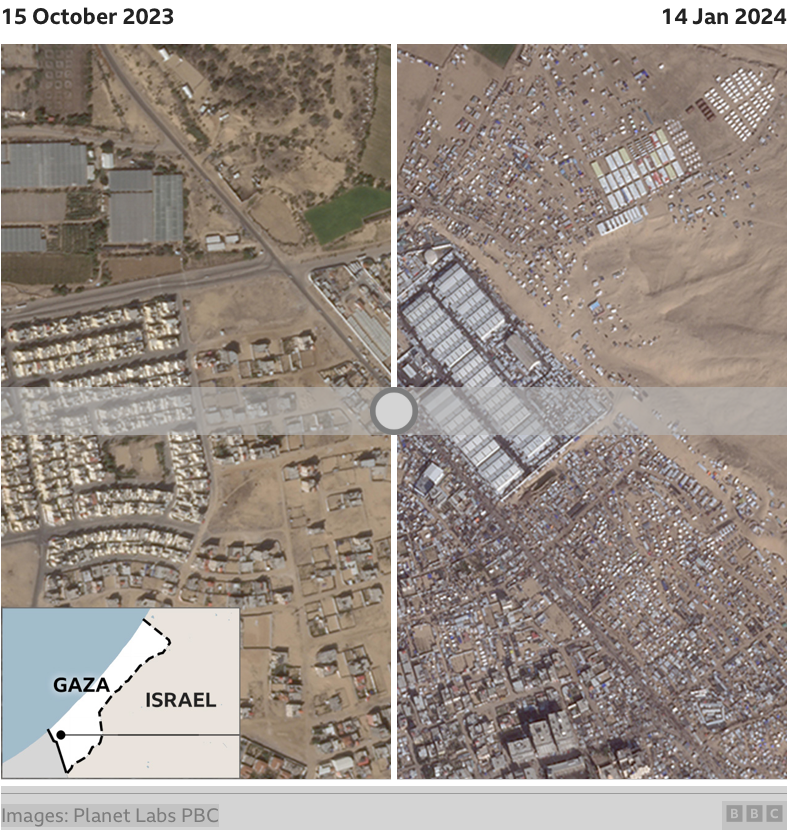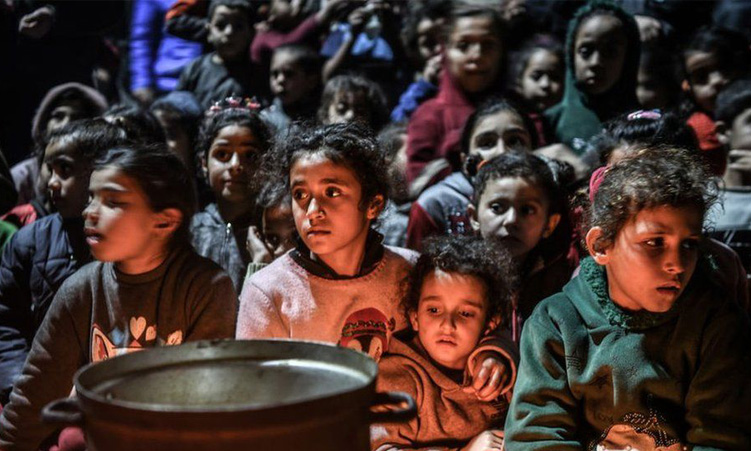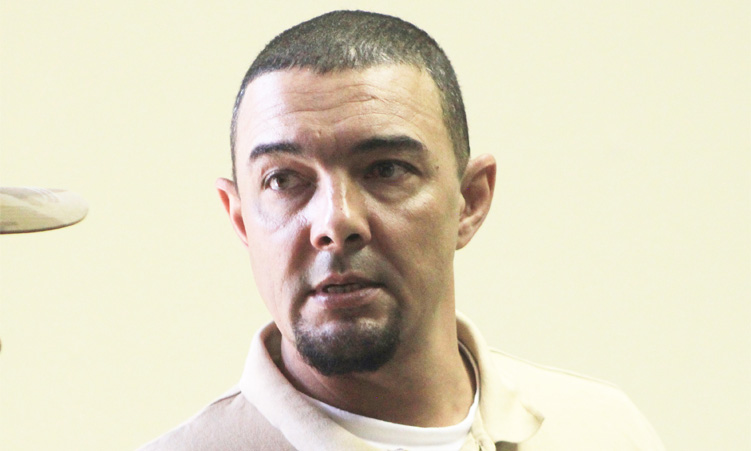The US has warned Israel that staging a military offensive into Gaza’s southern city of Rafah without proper planning would be a “disaster”.
Some 1.5 million Palestinians are surviving in the city bordering Egypt in dire humanitarian conditions.
The White House said it would not support major operations without due consideration for the refugees there.
The comments come days after Israel’s leader said the military had been told to prepare to operate in Rafah.
Most of the people in Rafah have been displaced by fighting from other parts of Gaza and are living in tents.
Israel bombed parts of Rafah from the air on Thursday morning and Israeli tanks reportedly also opened fire.
Garda al-Kourd, a mother-of-two who said she had been displaced six times during the war, said she was expecting an Israeli assault but hoped there would be a ceasefire agreement before it happened.
“If they come to Rafah, it will be the end for us, like we are waiting for death. We have no other place to go,” she told the BBC from a relative’s house in Rafah where she was living with 20 other people.
Emad, 55, a father of six sheltering in Rafah after fleeing his home elsewhere, was quoted by Reuters news agency as saying his greatest fear was a ground assault with nowhere left to run.
“We have our backs to the [border] fence and faces toward the Mediterranean,” he said. “Where should we go?”
Much of northern and central Gaza has been reduced to ruins by sustained Israeli bombardment since the war began on 7 October.
Speaking on Thursday evening, and without referring to Rafah, US President Joe Biden said Israel’s actions in Gaza had been “over the top”.

Earlier, US National Security Council spokesman John Kirby said the Israeli military had a “special obligation as they conduct operations there or anywhere else to make sure that they’re factoring in protection for innocent civilian life”.
“Military operations right now would be a disaster for those people and it’s not something that we would support,” he said, adding that the US had not seen anything to suggest Israel was going to launch a major operation in Rafah imminently.
Deputy State Department spokesperson Vedant Patel echoed Mr Kirby’s comments, saying: ”We [the US] would not support the undertaking of something like this without serious and credible planning.”
Asked by the BBC where refugees in Rafah should go in the event of an operation, Mr Patel said these were “legitimate questions that we believe the Israelis should answer”.
Speaking in the Israeli city of Tel Aviv, Secretary of State Antony Blinken said any “military operation that Israel undertakes needs to put civilians first and foremost… and that’s especially true in the case of Rafah”.
It is rare for the US, a key ally and military backer of Israel, to talk about any forthcoming stages of the country’s military offensive in Gaza – but this was a clear warning.
Washington sends around $3.8bn (£3bn) in military aid to Israel each year, making the country the world’s biggest recipient of such funding.
Around 1,300 people were killed during the Hamas attacks on southern Israel on 7 October, according to Israeli officials.
More than 27,800 Palestinians have been killed and at least 67,000 injured by the war launched by Israel in response, according to the Hamas-run health ministry.
“They are living in overcrowded makeshift shelters, in unsanitary conditions, without running water, electricity and adequate food supplies,” was the stark assessment of the situation by UN chief António Guterres on Thursday.
“We were clear in condemning the horrific acts of Hamas. We are also clear in condemning the violations of international humanitarian law in Gaza.”
On Tuesday, Israeli Prime Minister Benjamin Netanyahu said he had ordered troops to “prepare to operate” in Rafah and that “total victory” by Israel over Hamas was just months away.
Stay informed with The Namibian – your source for credible journalism. Get in-depth reporting and opinions for
only N$85 a month. Invest in journalism, invest in democracy –
Subscribe Now!









